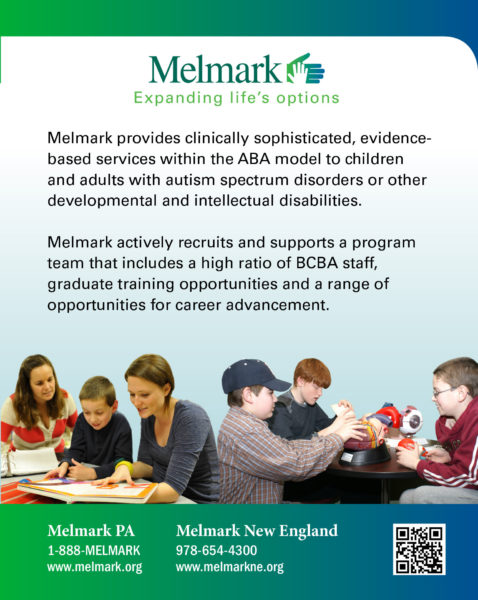We know that, in most families, the longest lasting relationship one has is with his or her sibling. When one of those siblings has a special need, the dynamic of this lifetime relationship can be significantly impacted. For some, a brother or sister learns to quickly adapt to new routines of therapists in the home, multiple medical and therapeutic appointments, and a general disruption to the typical flow of a household. While some children adapt easily and quickly, this shift in family functioning can cause distress, anger, and resentment for many siblings. These overwhelming and confusing feelings may stem from the disproportionate amount of parental attention given, different expectations, and the sense of responsibility the “typical” sibling feels.

Suzanne Muench, MSS, LCSW
There has been much written about the impact of intellectual disabilities on siblings and families, and how such experiences shape family members in various ways. Blacher and Baker (2007) discuss three levels in which positive impact could be assessed. The first level is considered “low negative” and is characterized by the absence of stress, depression, and other forms of negative impact. The second level, “common benefits,” is noted to include increased sensitivity and tolerance of family members and improved family dynamics. Finally, the third level is “special benefits” and includes things that are uniquely experienced by families of individuals with intellectual disabilities.
Specifically addressing the needs of siblings, studies have shown there to be a mix of outcomes in terms of children who are positively impacted, and those who are more negatively impacted. Angell et al. (2012) report positive outcomes may include increased social competence and self-esteem while negative outcomes can include increased loneliness, anxiety, and problem behavior. Being able to support siblings in their feelings and experiences is not only integral to the continued development of self in these individuals, but also to the development of the relationship with their sibling throughout their lifetimes.
Having a place where the typical sibling can go to meet other children with brothers or sisters facing similar needs can provide a so-called shelter in what can seem like a storm for them. One such meeting place is Sibshops. Don Meyer developed Sibshops out of the Sibling Support Project in Seattle, WA. Meyer describes Sibshops as “pedal-to-the-metal events where children will meet other sibs (usually for the first time), have fun, laugh, talk about the good and not-so-good parts of having a brother or sister with special needs, play games, learn something about the services their siblings receive, and have some more fun.” Currently there are over 475 Sibshops in over eight countries. More recently, SibTeen programs have also been developed, as well as online forums utilizing social media.
Melmark in Berwyn, Pennsylvania has been running Sibshops for four years, and this year launched a SibTeen group. An average of ten children ages seven to twelve come together once a month for two hours between the months of September and June. The group is a mix of fast-paced games to get the children moving and talking with one other, and more reflective activities to get them to think on a deeper level about their relationship with their siblings and families. When I first started the group, we spent a lot of time playing games, and I really underestimated the kids’ abilities and desires to have more in-depth conversations about what it means to have a brother or sister with special needs, and how that affects them and their families as a whole. Over the years, I have incorporated more time for these discussions, and have been pleasantly surprised at how the children rise to the challenge and really open up to their own feelings, as well as show empathy and concern for their peers. Last season we developed a newsletter for the siblings to discuss Sibshop and what it means to them. Jamie, a Sibshop participant, noted that she enjoyed Sibshop “because no one judged her by her sibling, and while the discussions can sometimes be uncomfortable, they are mostly helpful in helping to understand my own sibling, and be more helpful to others.” Discussions can range from how to cope with siblings’ challenging behaviors at home and in the community to worries about the future. Wise beyond their years, the exuberant group settles into discussions about what they worry and dream about, and what they hope for themselves and their siblings. The support, encouragement, laughter, and community the kids provide for each other serve as a great testament to the power of Sibshops to help meet these kids where they are and to allow safe space for the exploration of their feelings with no judgment or shame.
The SibTeen group started this year currently has five boys and girls ages 13-15, and all but one were a participant in the Sibshop program in previous years. Most of these teens also come back to help as Teen Helpers in the monthly Sibshop meeting and serve as role models for the younger children. We currently meet every other month from 6:00 p.m. to 9:00 p.m. to make dinner together, play games, and then have time for a more lengthy discussion about a particular topic of concern. Not only are these teens having to deal with more complex fears and anxieties about their siblings, but they are also going through adolescence in a time when, more than ever, they are being judged and evaluated on a number of social expectations that are made that much harder when you have unique family situations to contend with.
Whether playing silly games, or delving into complex emotional thoughts about living with a sibling with special needs, it’s clear that there are benefits to providing space for these children and teens to explore their feelings, both positive and negative. By allowing them the opportunity to share their experiences with others in similar situations, we can reduce the likelihood that they will feel lonely and isolated. Hopefully, this will also allow them an increase in their confidence and self-esteem in other areas of life. Given the longevity of the relationship they will likely have with their sibling, starting it off on a solid foundation early on can help assure they will be able to support each other through whatever life may bring.
The mission of Melmark is to serve children, adults and their families affected by a broad range of intellectual disabilities. With service divisions in Berwyn, Pennsylvania, and Andover, Massachusetts, Melmark provides evidence-based educational, vocational, clinical, residential, healthcare and rehabilitative services, personally designed for each individual in a safe environment of warmth, care and respect. For more information, please visit www.melmark.org and www.melmarkne.org.
References
Angell, M. E., Meadan, H., & Stoner, J. B. (2012). Experiences of Siblings of Individuals with Autism spectrum Disorders. Autism Research and Treatment, 2012. doi:10.1155/2012/949586
Blacher, J., & Baker, B. (September 2007). Positive Impact of Intellectual Disabilities on Families. American Journal on Mental Retardation, 112(3), 330-348.
Frequently Asked Questions about Sibshops. (n.d.). Retrieved February 01, 2017, from www.siblingsupport.org/about-sibshops/frequently-asked-questions





